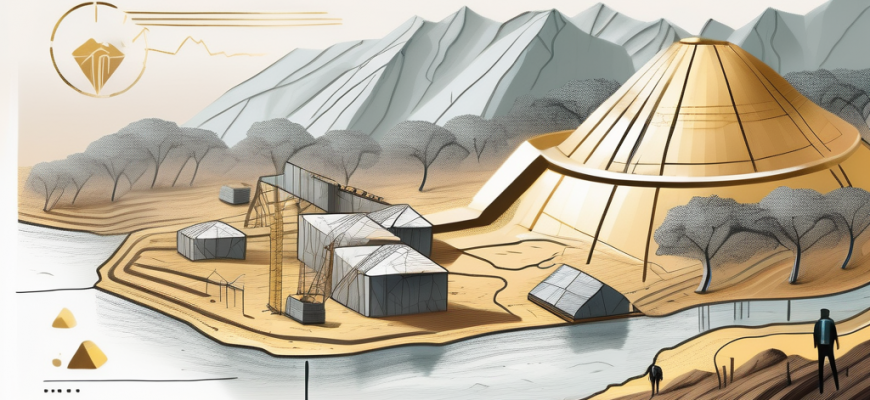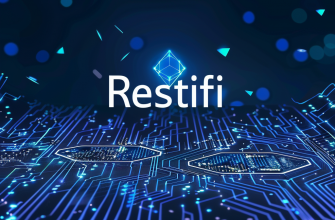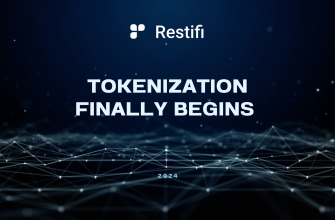Gold mining is a lucrative investment opportunity that has attracted many investors over the years. However, traditional methods of investing in gold mines can be complex and inaccessible to the average investor. This is where tokenized gold mines come into play. In this comprehensive guide, we will explore the world of tokenized gold mines and provide you with step-by-step instructions on how to buy shares in a gold mining company in the Democratic Republic of Congo (DRC).
- Understanding Tokenized Gold Mines
- What are Tokenized Gold Mines?
- The Benefits of Tokenized Gold Mines
- Risks Involved in Tokenized Gold Mines
- The Gold Mining Industry in DR Congo
- Overview of the DR Congo Gold Mining Sector
- The Role of Gold Mining in DR Congo’s Economy
- Legal and Regulatory Framework for Gold Mining in DR Congo
- How to Buy Shares in a Gold Mining Company
- Steps to Buying Shares in a Gold Mining Company
- Things to Consider When Buying Shares
- Understanding the Risks and Rewards
- Tokenizing Gold Mining Shares
- The Process of Tokenizing Gold Mining Shares
- Benefits of Tokenizing Gold Mining Shares
Understanding Tokenized Gold Mines
Before delving into the process of buying shares in a gold mining company, it is essential to understand what tokenized gold mines entail. Tokenization is the process of converting the ownership rights of an asset into digital tokens on a blockchain. In the case of gold mines, tokenization allows investors to own fractional shares of gold mining companies. These tokens represent ownership in the company and are backed by the physical gold reserves.
What are Tokenized Gold Mines?
Tokenized gold mines are investment vehicles that enable investors to purchase shares in gold mining companies using digital tokens. These tokens are based on blockchain technology, ensuring transparency and security. By tokenizing gold mines, the barriers to entry for investing in the gold mining industry are significantly reduced.
When an investor purchases tokenized shares in a gold mining company, they are essentially buying a portion of the company’s mining operations. The tokens represent ownership in the company and entitle the investor to a share of the profits generated from gold mining activities. This allows investors to participate in the potential financial gains of the gold mining industry without the need to directly own and manage physical gold mines.
Tokenized gold mines also offer flexibility in terms of investment size. Fractional ownership allows investors to diversify their portfolios with smaller investments, as they can purchase a fraction of a token rather than a whole token. This opens up opportunities for individuals who may not have had the financial means to invest in the gold mining industry previously.
The Benefits of Tokenized Gold Mines
Tokenized gold mines offer numerous advantages for investors. Firstly, they provide access to the gold mining industry, which was previously limited to large institutional investors. This democratization of access allows individuals from all walks of life to participate in the potential wealth generated by gold mining activities.
Secondly, tokenization allows for fractional ownership, enabling investors to diversify their portfolios with smaller investments. By owning fractional shares of multiple gold mining companies, investors can spread their risk and potentially increase their chances of earning returns. This diversification strategy is particularly beneficial in an industry that can be affected by various factors such as market fluctuations and geopolitical events.
Additionally, tokenized gold mines provide liquidity, allowing investors to buy and sell their shares more easily compared to traditional gold mining investments. The tokens can be traded on cryptocurrency exchanges, providing a secondary market for investors to enter or exit their positions. This liquidity enhances the flexibility and convenience of investing in gold mining companies.
Risks Involved in Tokenized Gold Mines
While tokenized gold mines offer exciting investment opportunities, it is crucial to consider the potential risks involved. One of the main risks is the volatility in the price of gold, which can directly impact the value of the tokenized shares. Gold prices are influenced by various factors such as economic conditions, inflation, and geopolitical events. Investors in tokenized gold mines should be prepared for the possibility of fluctuations in the value of their investments.
Furthermore, regulatory uncertainties can pose risks to tokenized gold mines. The regulatory landscape surrounding cryptocurrencies and blockchain technology is still evolving in many jurisdictions. Changes in regulations or unfavorable regulatory decisions could impact the operation and viability of tokenized gold mines. Investors should stay informed about the legal and regulatory environment in their respective jurisdictions to make informed investment decisions.
Another risk to consider is the possibility of fraudulent projects. As with any investment, there is a risk of encountering fraudulent schemes or projects that misrepresent their operations or potential returns. Investors should conduct thorough due diligence and research before investing in tokenized gold mines. This includes reviewing the credibility and track record of the gold mining company issuing the tokens, as well as assessing the transparency and security measures implemented in the tokenization process.
In conclusion, tokenized gold mines offer a new and innovative way for investors to participate in the gold mining industry. They provide access, liquidity, and fractional ownership, making gold mining investments more accessible and flexible. However, it is essential for investors to carefully evaluate the risks involved and make informed decisions based on their risk tolerance and investment goals.
The Gold Mining Industry in DR Congo
The Democratic Republic of Congo (DRC) is renowned for its vast mineral resources, including significant gold deposits. Understanding the gold mining industry in the DRC is vital for making informed investment decisions.
The gold mining sector in the DRC is a complex and dynamic industry that has a profound impact on the country’s economy and its people. Let’s take a closer look at the overview, role, and legal framework of the gold mining industry in the DRC.
Overview of the DR Congo Gold Mining Sector
The DRC has one of the richest gold mining sectors in Africa. With its abundant reserves and favorable geological conditions, the country has attracted major gold mining companies from around the world. These companies have invested heavily in exploration and development projects, contributing to the growth and expansion of the industry.
Gold mining in the DRC is not limited to a single region. The country’s gold deposits are spread across various provinces, including Orientale, South Kivu, and Ituri. Each region has its unique geological characteristics, presenting different challenges and opportunities for mining companies.
The gold mining sector in the DRC is a significant contributor to the country’s economy. It generates substantial revenue and foreign exchange earnings, which are crucial for the development and stability of the nation. Moreover, the industry plays a vital role in providing employment opportunities, supporting local communities, and stimulating economic growth.
The Role of Gold Mining in DR Congo’s Economy
Gold mining has a multifaceted impact on the DRC’s economy. On one hand, it brings numerous benefits, including job creation, infrastructure development, and increased government revenue. The industry provides employment opportunities for thousands of Congolese workers, both directly and indirectly, through various support services and supply chains.
Furthermore, gold mining attracts foreign investment, which contributes to the overall economic growth of the country. International mining companies bring in capital, expertise, and advanced technologies, enhancing the efficiency and productivity of the mining operations. This, in turn, leads to increased production and export of gold, boosting the DRC’s foreign exchange earnings.
However, the gold mining industry also faces significant challenges. Environmental sustainability is a critical concern, as mining activities can have adverse effects on the surrounding ecosystems. The extraction and processing of gold often involve the use of chemicals and heavy machinery, which can lead to soil erosion, water pollution, and deforestation if not properly managed.
Social responsibility is another important aspect that mining companies in the DRC must address. They need to ensure that their operations benefit local communities, respect human rights, and promote sustainable development. This includes providing fair wages, supporting education and healthcare initiatives, and engaging in meaningful dialogue with stakeholders.
Legal and Regulatory Framework for Gold Mining in DR Congo
The DRC has implemented a comprehensive legal and regulatory framework to govern the gold mining industry. This framework aims to promote responsible mining practices, protect the environment, and ensure the equitable distribution of benefits.
One of the key regulations is the Mining Code, which sets out the rights and obligations of mining companies operating in the DRC. It establishes guidelines for exploration, exploitation, and mine closure, as well as provisions for environmental protection and community engagement.
The government of the DRC has also established institutions and agencies to oversee and enforce the mining regulations. These include the Ministry of Mines, which is responsible for granting mining licenses and monitoring compliance, and the National Mining Agency, which regulates and supervises mining activities throughout the country.
Investors interested in the gold mining sector in the DRC must be aware of these regulations and comply with them when investing in mining companies. It is essential to conduct due diligence and engage in transparent and responsible business practices to ensure sustainable and mutually beneficial partnerships with local communities and the government.
In conclusion, the gold mining industry in the DRC is a vital sector that contributes significantly to the country’s economy. It offers immense potential for investors, but also requires a careful balance between economic development and environmental and social responsibility. By understanding the overview, role, and legal framework of the gold mining industry in the DRC, stakeholders can make informed decisions and contribute to the sustainable growth of this important sector.
How to Buy Shares in a Gold Mining Company
Now that we have covered the basics of tokenized gold mines and the gold mining industry in the DRC, let’s dive into the process of buying shares in a gold mining company.
Steps to Buying Shares in a Gold Mining Company
1. Research and Identify Potential Gold Mining Companies: Start by researching and identifying reputable gold mining companies operating in the DRC. Look for companies with a strong track record, experienced management teams, and transparent operations.
2. Evaluate the Financials and Performance: Analyze the financial performance of the selected gold mining companies. Look at their revenue, profitability, production levels, and growth potential. This information will help you assess the company’s investment viability.
3. Open an Investment Account: To buy shares in a gold mining company, you need to open an investment account with a reputable brokerage firm or platform that offers access to the DRC market. Follow the account opening process and complete all required documentation.
4. Fund Your Investment Account: Transfer funds into your investment account to have capital available for purchasing shares. Ensure that you have sufficient funds to cover the desired investment amount.
5. Place Your Order: Once your investment account is funded, you can place an order to buy shares in the selected gold mining company. Specify the number of shares you want to purchase and the price at which you are willing to buy.
Things to Consider When Buying Shares
When buying shares in a gold mining company, there are several factors to consider. Firstly, assess the company’s financial health and growth potential. Look at factors such as reserves, production capacity, and management expertise. Additionally, consider the geopolitical, social, and environmental risks associated with the company’s operations in the DRC.
Understanding the Risks and Rewards
Investing in gold mining companies can be rewarding, but it also comes with risks. The price of gold can fluctuate, impacting the performance of the company’s shares. Political instability, regulatory changes, and operational challenges are additional risks that investors need to factor into their investment decisions.
Tokenizing Gold Mining Shares
Nowadays, blockchain technology has revolutionized various industries, including the gold mining sector. Tokenizing gold mining shares brings numerous benefits and opens up new possibilities for investors.
The Process of Tokenizing Gold Mining Shares
The process of tokenizing gold mining shares involves converting ownership rights in a gold mining company into digital tokens. This process typically occurs on a blockchain platform that provides transparency and security. The shares are represented by digital tokens, allowing for easy transfer and fractional ownership.
Benefits of Tokenizing Gold Mining Shares
Tokenizing gold mining shares offers several advantages for both investors and companies. Firstly, it increases liquidity by enabling easier and faster trading of shares. Secondly, fractional ownership allows investors with smaller budgets to participate in gold mining investment opportunities. Additionally, tokenization provides transparency and security through the use of blockchain technology.









